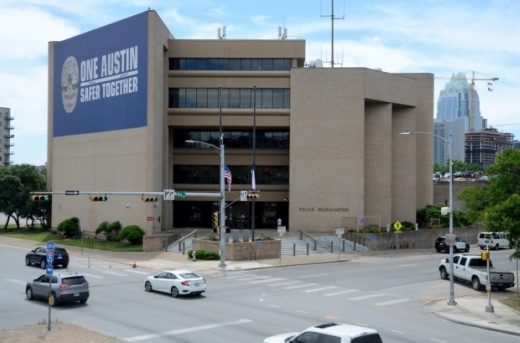Brought forward by the political action committee Save Austin Now this summer, the proposition calls for a ramp-up in police staffing both through an increased officer count and a requirement to run three Austin Police Department cadet classes until APD has a force of more than 1,950 officers. The proposition also includes requirements for officer training and uncommitted, or "community engagement," time; officer retention incentives; and a mandate that city officials, their staff and public safety commissioners go through the civilian police academy and officer ride-alongs.
Given SAN's successful petition drive this summer, City Council on Aug. 11 had the option to either approve the proposition's measures outright or send it before voters this fall. District 6 Council Member Mackenzie Kelly was the lone member expressing a desire to see the proposal passed immediately via council, while all 11 officials on the dais eventually voted for its inclusion on the November ballot—despite near-unanimous opposition to the concept and its projected costs.
"If I could vote 'no' on Item 10 today, I would do that. Instead, I will vote to put it on a ballot and hope to educate the community sufficiently so that they understand how fiscally irresponsible this measure is," District 7 Council Member Leslie Pool said.
In an Aug. 10 memo, Austin Chief Financial Officer Ed Van Eenoo laid out estimates showing the city could be locked into spending an average of $54.3 million-$119.8 million annually to fulfill the proposition's staffing requirements. While the proposition language calls for a standard of two officers per 1,000 residents, the city-calculated figures would provide for a staffing ratio of between 2.13 and 2.35 officers per 1,000; Van Eenoo said the higher budgeted numbers would be needed to stay staffed above the hard floor to offset projected vacancies.
Based on 2020 population estimates, Austin's budgeted police force stands at around 1.82 officers per 1,000 and its actual ratio has ranged lower with APD tracking dozens of vacancies monthly. The cost range is based on projected increases in the city's population and employee pay growth, and cumulative spending could end up anywhere from $271.5 million-$598.8 million over five years—funding between 403 and 885 new officer positions over the same period—according to Van Eenoo's forecast.
Several council members speaking on the ballot item, now labeled Proposition A, called it irresponsible and ineffective as a public safety initiative. In a presentation, District 4 Council Member Greg Casar outlined the proportional cost of the city's $120 million high-end average annual cost estimate as equal to potentially hundreds of fire, EMS, parks and recreation, library, housing, courts and social service staff. He also noted the $120 million figure is higher than the budgets of city departments including parks and EMS.
Following Casar's rundown of cost comparisons, Council Members Vanessa Fuentes and Pio Renteria also shared their worries over the city services and other public safety programs that could be cut to fund the policing requirements.
“I just can’t believe this group that brought this petition; it’s so irresponsible for them," Renteria said. "The first thing that we would have to cut is library, parks, our swimming pools, all our rec centers. And that is what’s keeping us safe, is keeping young people active. ... For us to have to cut any of these programs is just going to put more people in the streets not having anything to do.”
Like the SAN-backed homeless-focused Proposition B that voters approved in May, the policing proposition's language did not detail how it would be funded if passed. With council's vote to add the item to the November ballot, members also approved an addition to the proposition's caption highlighting the potential cost as estimated by staff.
SAN co-founders Matt Mackowiak and Cleo Petricek released a statement Aug. 11 pushing back on the city's cost analysis but did not detail a proposed spending plan. Mackowiak did not respond to a request for comment Aug. 11 about his expectations for the cost or timeline of the proposition's implementation, if it is approved.
"It makes no sense that our elected officials have chosen to allocate $515 [million] to homelessness over the next three years and raise taxes again this year, while simultaneously arguing that returning to an adequate police staffing level is financially impossible in the face of rising crime," Mackowiak and Petricek said. "In a rapidly growing city with a $4.2 billion budget, we can afford public safety. What we cannot afford is to let this council run amok any longer."





